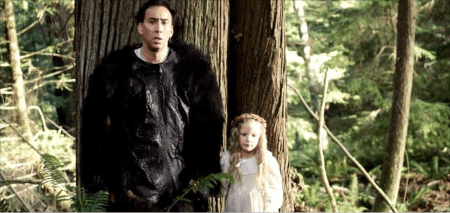DIRECTED BY: Asia Argento
FEATURING: Asia Argento, Jean Shepherd, Joe Coleman
PLOT: A hot young Italian actress has dirty sex, encounters Hollywood scumbags, and does too much Special K while looking for true love.

WHY IT WON’T MAKE THE LIST: This semi-hallucinatory semi-autobiography, the directorial debut of Dario Argento‘s actress daughter, is merely a curiosity, though frequently an outlandish and entertaining one. It’s made with all the taste and subtlety you would expect from a woman with an angel tattooed over her crotch.
COMMENTS: Scarlet Diva is an experimental art movie that wouldn’t have been out of place on Cinemax After Dark. Asia Argento, the writer-director, asks Asia Argento, the actress, to do full frontal nudity, multiple sex scenes, a lesbian scene, and a couple of attempted-rape scenes. To freak out in front of a mirror while tripping on ketamine. To smoke, drink, and get into a mosh pit while pregnant. To pathetically pine for a pretty boy rock singer who doesn’t have time for her. To imagine herself as the Virgin Mary. Asia Argento, trooper that she is, eagerly complies with all these requests.
Scarlet Diva is timely because, among its many unsavory anecdotes, it includes a fictionalized version of the actress’ sexual abuse at the hands of now disgraced producer Harvey Weinstein. (In this version, she gets away, and he chases her down a hotel corridor as the camera focuses on his hairy ass). Yet that episode is only one of the many chaotic tales in this rambling confessional that plays like a trashy tell-all bestseller brought to life by an ambitious film student who hadn’t quite decided whether she wants to direct for the arthouse or for the late night cable market. So you get a hog-tied nude roommate, childhood flashbacks, a puking scene, dream sequences, a drug trip complete with an out-of-body experience, a religious bestiality icon, aerobics in leopard-skin panties, screaming into the void, an encounter with a horny heroin-addicted genius, Asia nude shaving her underarms while Nina Simone sings “Wild is the Wind,” and so on. And exchanges like, “That’s the first time I’ve ever made love.” “Don’t tell me you’re a virgin?” “No, I’m a whore.”
It’s pretentious, sure, but in the most enjoyable way: honest, over-the-top, passionately personal, and never boring. Scarlet Diva is not, by most definitions, great filmmaking. And yet, there’s an excellent chance you’ll find yourself entertained by it, in a guilty pleasure way. And you’ll also feel legitimate pity and affection for Argento, despite the occasional clumsiness with which she makes the case for her own debasement. It’s better than a so-bad-it’s-weird movie, but it’s in the same general region, in the sense that it’s as often interesting for things it does wrong as for things it does right.
Film Movement Classics treats Diva like a Criterion-worthy masterpiece. There are tons of supplements, including an 8-minute “making of” featurette; an archival Asia Argento interview; multiple versions of the trailer, including an 8-minute promo; and an odd piece called “Eye of the Cyclops” where Joe Coleman talks about his role in the film while showing us his titular conceptual art piece. It’s capped off by a very personal, even uncomfortable commentary track where Argento almost breaks into tears at times, curses Harvey Weinstein, and refuses to discuss certain painful scenes in detail.
WHAT THE CRITICS SAY:





